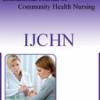Abstract
Title
EFFECTIVENESS OF VIDEO ASSISTED TEACHING PROGRAMME
ON KNOWLEDGE REGARDING IMPACT OF MOBILE PHONE USE
ON HEALTH STATUS AMONG NURSING STUDENTS OF
SELECTED NURSING COLLEGES, BANGALORE
Author
Tejeshwari BV, Ajal Varghese Mathew, S. Nithish Kumar, Sangita Karki,
Upasana Kumari, VL Hriatpuii Novi
Email
tejeshwinirajesh@gmail.com
keyword
Knowledge, Effectiveness, Video Assisted Teaching Programme, Impact of Mobile Phone Use.
Abstract
Human being is a social animal. To socialize with others, we need to share over views, beliefs, feelings etc. This
sharing is facilitated by communication. Communication is the transfer of information from person to person. This may be in
form of sound transmission such as human speech, the beating of the drum, or even the bird's call. It can also be in a form
that requires sight like writing, pictures, and signals, gestures and a form that requires the utilization of other senses. There
are many means on how you can reach out to other people to communicate and one of this is the use of a mobile cell phone.
It can be used for business calls that binds two or group of people to convey messages to each other and these are possibly
made for colleagues and business men or employers to conduct business and meetings anytime, anywhere. Objectives: - 1.To
assess the existing level of knowledge regarding impact of mobile phone use on health status among the nursing students of
selected nursing college, Bangalore.2. To develop and administer a video assisted teaching programme on knowledge
regarding impact of mobile phone use on health status among the nursing students of selected nursing college, Bangalore. 3
.To assess the effectiveness of video aid teaching programme on the impact of mobile phone use on health status among the
nursing students of selected nursing college, Bangalore, by post-test knowledge score. 4.To find out the association between
the post-test knowledge regarding impact of mobile phone use on health status among nursing students with selected
demographic variables. Design:-Pre-experimental design (one group pre-test post-test design) was used for the study to see
the effectiveness of Video assisted teaching. 50 nursing students, in selected nursing college, Bangalore were recruited by
non-probability purposive sampling technique. Necessary administrative permission was obtained from concerned authority.
Structured interview schedule was used to elicit the baseline data and structured questionnaires and video assisted teaching
were used to elicit the knowledge regarding impact of mobile phone use on health status among nursing students in selected
nursing college, Bangalore. Setting:-The study was conducted in selected nursing college, Bangalore, 50 samples were
recruited for the present study. Result: - The data was analyzed by using descriptive and inferential statistics. Knowledge of
nursing students was assessed and tabulated, out of 50 nursing students reveals that 16 (32%) participants were in inadequate
knowledge, 34 (68%) participants were in moderate knowledge in pre-test but it was decreased in post-test that is 48 (96%)
participants were in adequate knowledge 2 (4%) were in moderate knowledge in post-test and there was no inadequate
knowledge found in post-test. Paired‘t’ value of knowledge was 12.5 which is greater than the table value and found
statistically significant. Conclusion: - The overall experience of conducting this study was satisfying and enriching the knowledge. The study was a new learning experience for the investigator. The study shows that there is a great need to
develop and implement video assisted teaching programme for various topics and procedures. Study was found to be
effective in the improving knowledge of nursing students as evidenced by the significant change between pre-test and posttest
knowledge score. The study reveals that the video assisted teaching programme can be used as an effective teaching
learning method.













